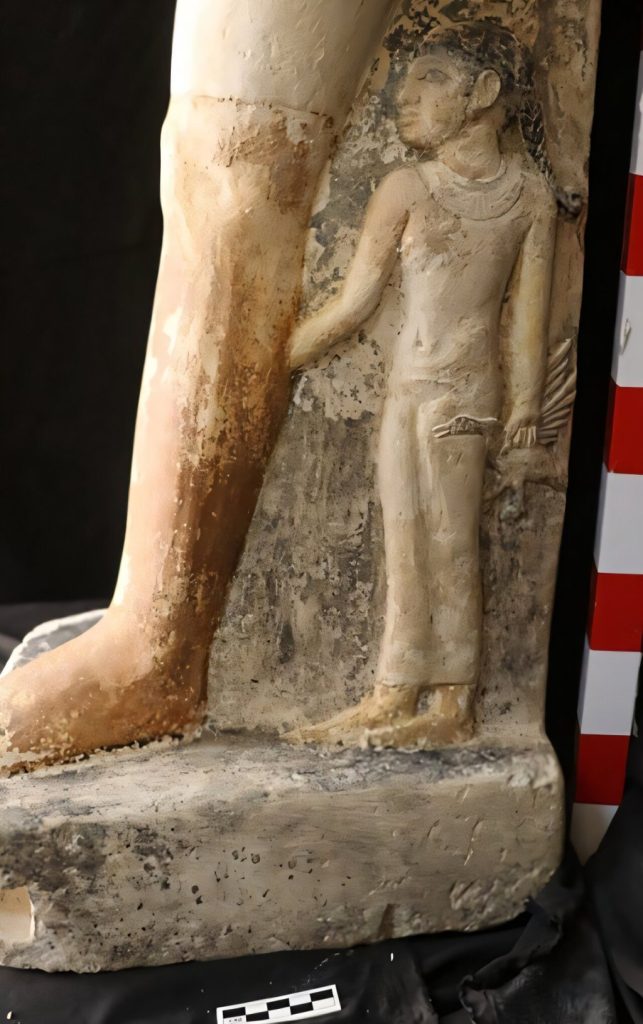Archaeologists unearthed an unusual stone statue from one of the oldest stone structures in the necropolis of Saqqara, Egypt.
Left behind by grave robbers and lost to the sands of time, the statue was found by archaeologists working at Gisr el-Mudir in 2021, but news of the piece was only detailed earlier this year by Zahi Hawass and Sarah Abdoh in the Journal of Egyptian Archaeology. They believe the statue depicts an ancient family.
The central figure is a nobleman clad in attire traditionally associated with elite men of the period. He stands with his left foot forward in keeping with the artistic traditions from the Old Kingdom. Emphasis on his well-defined upper body was intended to indicate the man’s everlasting vitality.
Related Articles

A woman thought to be his wife is sculpted alongside him at a smaller scale—an intimate gesture long interpreted by experts as a sign of loyalty and companionship. Kneeling at his feet with her arm wrapped around his leg, she appears to be wearing traditional attire for in keeping with the Old Kingdom.
A third figure, identified as the pair’s young daughter, appears behind the man’s leg, grabbing her father with her right arm and holding a goose in the other. The goose traditionally represents an offering for eternal sustenance in the afterlife. Most notably, however, the girl is carved in a different style. Instead of being fully in the round, she is etched into the stone surface in bas-relief.
This type of depiction is not unusual among ancient Egyptian tomb scenes, but any further context about the artifact had been lost since it was removed from its original burial location. Researchers then compared the statue to other known tombs and findings from the same time and location.
They determined that the limestone carving is unprecedented in family statuary from that period and, as such, the Gisr el-Mudir statue is the only known example of artistic experimentation of its kind. It ultimately memorializes the lives, values, and artistic innovations that defined Egypt’s Old Kingdom.

